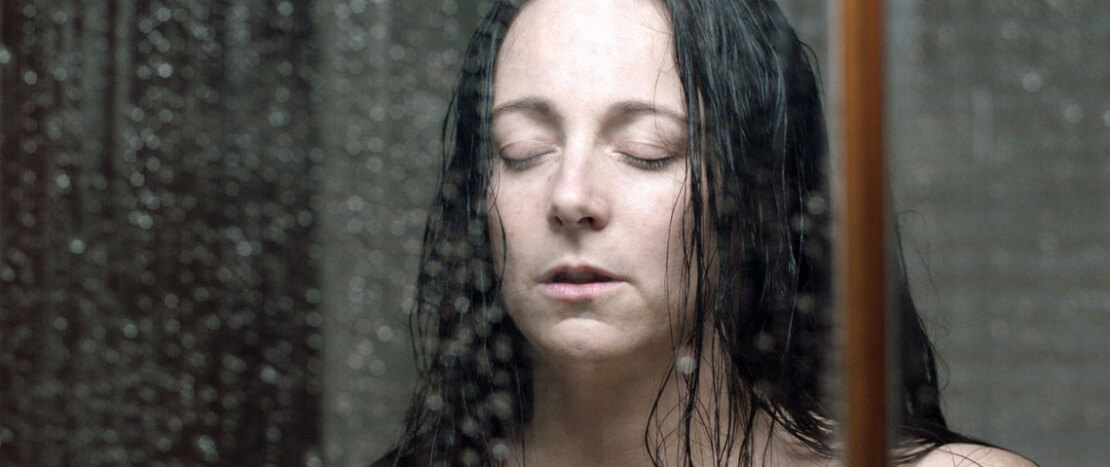Un Crimen Común / A Common Crime
Single parent Cecilia (Elisa Carricajo) enjoys a close relationship with her housekeeper. However, when her housekeeper’s son Kevin tries to break in one night, she hides out of fear. When it is revealed the next day that Kevin has been murdered by the local police, Cecilia starts to be haunted by guilt. Or is it something else…?
…continually flirts with the audience throughout as to which genre it’s going for.
Within Argentinian director Francisco Márquez’s ‘Un Crimen Común’ (A Common Crime) there are multiple targets. Whilst its central concern is how paralysing fear can manifest itself into a psychotic state, this is also a film that takes aim at the country that it’s set in.
With its ever-present past where 30,000 of its citizens were ‘disappeared’ by the ruling military junta, “speaking out” still carries a sense of consequence that time has not fully erased. Where choosing to look the other way is now an affordable luxury, in doing so, Cecilia’s shame carries both historical and class-based connotations.
That said, in attempting to create Cecilia’s constant disorientation, ‘Un Crimen Común’ continually flirts with the audience throughout as to which genre it’s going for. As doors open themselves, the television turns itself on and pools of water mysteriously gather by the bathroom, Francisco Márquez presents genuine scenes of horror and drama without ever settling on either.
Glueing your intrigue and gathering disbelief together is the fantastic central performance of Elisa Carricajo. By skilfully dialling up the increased creepiness, Carricajo’s subtly hints at Cecilia’s unhinged mind and in doing so sublimely carries the movie over its choppier moments of daft logic.
Much like its climatic roller coaster ride, ‘Un Crimen Común’ is a film that will have you on the edge of your seat. Yet whether it’ll keep your disbelief in check throughout is another question. For that, you’ll need to buy a ticket.









